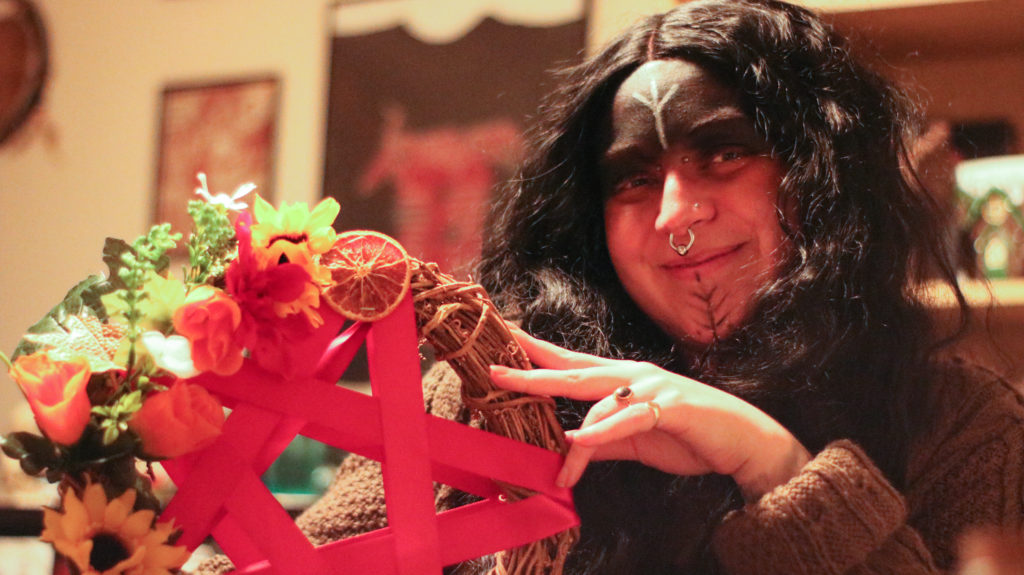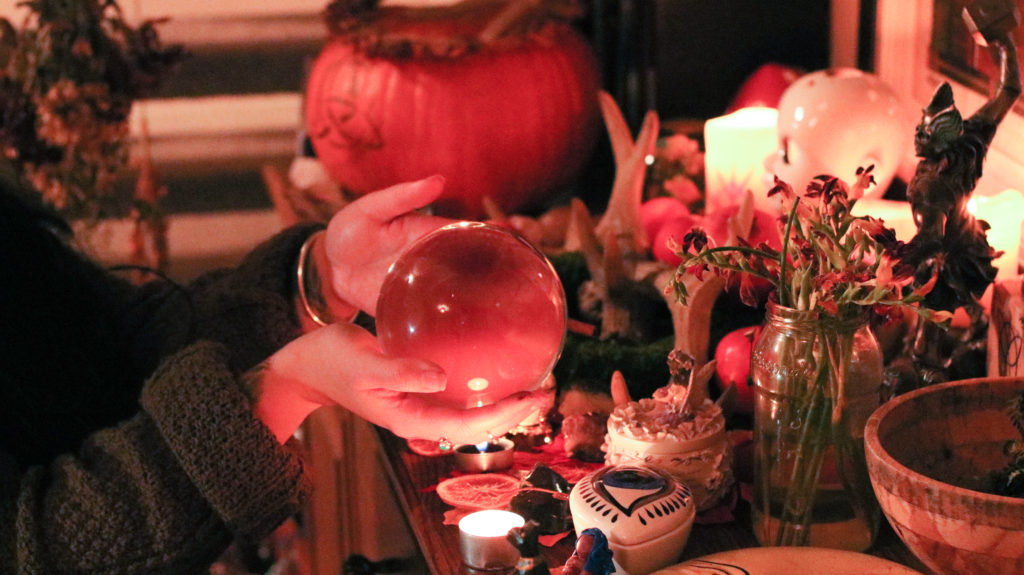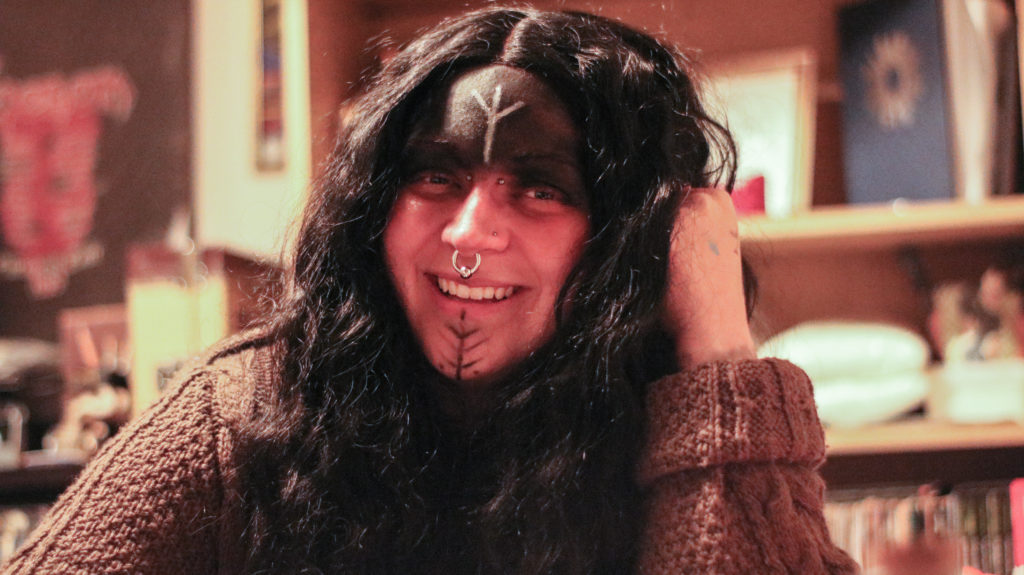Welsh pagan Saffron Francessca learnt to make crafts during lockdown and now sells her wares internationally after an overwhelming response

Lockdown has left many people at a crossroad in their careers. For Saffron Francessca, finding herself unemployed at the start of lockdown helped her turn her passion for paganism into a business, growing exponentially to serve an international audience in its first month.
Seven years of practising witchcraft prepared the 21-year-old from Maesteg to take her business to the next level in time for Halloween, selling her candles, wreaths, jewellery and spells to a wider audience through a collaboration with The Richmond Coven, an alternative homeware and jewellery store.
“To be honest, it is really overwhelming because I didn’t have the highest expectations for it,” she laughs nervously, “I knew a few friends and family members would buy things that I made but I did not expect a place where I shop myself to sell my things.”
Listen to this story
I knew a few friends and family members would buy things that I made but I did not expect a place where I shop myself to sell my things

From meditation to magic
Saffron started exploring paganism at the age of 14, after using meditation to help with the stress of her school deadlines, but she never considered it as a career path.
After studying art at the University of Wales Trinity Saint David, she worked as a tattoo artist, which she planned on continuing until lockdown hit in March.
At the start of lockdown, she was recovering from a major surgery that left her unable to walk or do her usual daily activities.
She recounted, “The healing process wasn’t that great, so I wasn’t really doing much, and I think my mental health just went so bad because of that as well. And then lockdown happened.”
She explains that lockdown was a huge obstacle in her life, putting her at a stopping point without knowing what to do next.
She found solace in her witchcraft and realised that if she could improve how she felt she could do this for others too, inspired by people she saw making things online during the pandemic.

Learning from loved ones
Despite helping her make the life-changing decision to start a business, the recent firebreak lockdown has proved tough for her as she cannot easily acquire the raw materials she needs to make her products.
She said that she has felt under a lot of pressure to keep up with orders working alone, and the lack of second opinion makes her start to doubt herself.
Family provides a crucial support for her in coping with the stress of running her own business.
“I phone my mother, I’m like ‘Mam, I’m stressing out’”, she laughs. Her mother was a businesswoman, so she looks to her for advice and wisdom, but she is conscious of wanting to be as independent as possible.
She lights up when she talks about her loved ones, so it is no surprise that her biggest hope for the future is to be able to bring family and friends into her business: “Just working with other people I’m looking forward to, that’s what I hope will happen.”
She is cautious to predict where her business will end up, but there is one thing she is certain of: “I’d love to do this for the rest of my life.”
What is paganism?
Paganism is a general term for any nature-based faith. Pagans may follow particular traditions or explore their own path. Its followers worship nature as well as many deities, including gods and goddesses. Many pagans choose to practise some form of witchcraft, although not all pagans are witches.
How many Pagans are there in Wales?
Paganism has been on the rise in Wales for many decades. According to the Office for National Statistics, the number of pagans in the UK almost doubled between 2001 and 2011, with over 85,000 people identifying with a pagan faith in 2011.
There is no accurate estimate of the number of practising pagans currently residing in the UK, but many sources argue the number is much higher than predicted, suggesting there may be over a quarter of a million people currently practising these faiths.
